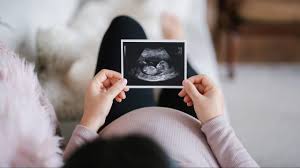Suspecting that you might be pregnant can bring a mix of excitement and nerves. But how can you actually know for sure if you're pregnant? Here are some common signs and symptoms that may indicate a possible pregnancy.
-
Missed Period
One of the most obvious signs is a missed period. If your menstrual cycle is typically regular and you're overdue, it could be a sign of pregnancy. However, it's worth noting that some women experience light bleeding known as implantation bleeding when the embryo attaches to the uterine wall.
-
Nausea and Vomiting
Many women experience morning sickness, though it can occur at any time of day. It's important to note that not all pregnant women experience nausea. Some may have no nausea at all.
-
Breast Tenderness
Your breasts may feel more sensitive or tender than usual. This is due to hormonal changes occurring in your body.
-
Fatigue
Early pregnancy can lead to fatigue and an overall sense of exhaustion. Your body is undergoing significant changes to support a growing baby.
-
Changes in Appetite
You may notice changes in your appetite, with some women having increased hunger while others have a decreased appetite. Changes in taste preferences are also common.
-
Frequent Urination
Some women experience more frequent urination than usual during early pregnancy. This is caused by increased pressure on the bladder from the growing uterus.
-
Mood Swings
Hormonal changes can lead to mood swings, ranging from happiness to irritability.
-
Abdominal Cramps
Mild abdominal cramping, similar to menstrual cramps, can occur as a sign of implantation and uterine changes during pregnancy.
-
Changes in Breasts
Your breasts may become swollen, painful, or larger. The nipples can also darken in color.
If you suspect you might be pregnant, you can take a pregnancy test. These tests are readily available at pharmacies and supermarkets. A pregnancy test measures the level of the hormone hCG (human chorionic gonadotropin) in your urine, which is produced during pregnancy.
A positive test typically indicates pregnancy, but it's crucial to contact a healthcare provider, such as a doctor or gynecologist, to confirm your pregnancy and discuss next steps.
Keep in mind that the above symptoms can also be caused by other conditions, so it's always best to seek professional medical advice if you suspect you're pregnant or have concerns about your health. Pregnancy is a unique journey, and it's important to take good care of yourself during this special time in your life.





